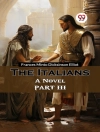Ernst Eckstein’s ‘Quintus Claudius’ (Vol. 1 & 2) emerges as a notable contribution to the realm of historical fiction, interweaving rich historical detail with vivid narrative. Set against the backdrop of ancient Rome, the novel chronicles the life of the titular character, a fictional representation of the societal and political intricacies of the era. Eckstein’s prose exemplifies meticulous research blended with poetic elegance, highlighting the moral dilemmas and cultural dynamics of Roman life, creating a tapestry of human experience that resonates with contemporary readers. The author employs a vivid, immersive style that draws readers into the complexities of loyalty, power, and personal ambition, firmly situating the work in the literary tradition of the historical novel while also engaging with themes of identity and belonging. Ernst Eckstein, a seasoned writer and historian, possessed a profound interest in the ancient world and its cultural ramifications. His background in classical literature and history significantly influenced his portrayal of Quintus Claudius and his intricate world. Drawing from his extensive academic knowledge, Eckstein shapes a narrative that not only entertains but educates, allowing readers to traverse the labyrinth of Roman society and its enduring legacies. This compelling saga is a must-read for enthusiasts of historical fiction, offering both meticulous scholarship and engaging storytelling. Readers will find themselves captivated by Eckstein’s exploration of timeless questions of power and morality. ‘Quintus Claudius’ is not merely a narrative; it is a gateway into the heart of ancient Rome, and an essential read for anyone seeking to deepen their understanding of historical narratives.
About the author
Ernst Eckstein (1845–1900) was a German novelist and humorist, renowned for his contribution to 19th century literature. Born in Breslau (then part of Prussia, now Wrocław, Poland), Eckstein demonstrated a penchant for writing at an early age. His literary career spans works that reflect both the humor and the historical nuances of his era. One of Eckstein’s notable works includes ‘Quintus Claudius, ‘ a novel set in ancient Rome, which was published in two volumes. This historical fiction, replete with vivid characterizations and detailed settings, exhibits Eckstein’s ability to animate the past with a mixture of grand narrative and acute social observation. The novel helped to establish him as a significant storyteller of historical events, intertwining factual precision with creative imagination (Eckstein, E. ‘Quintus Claudius’, 1882). Eckstein’s literary style is characterized by its narrative fluency and the integration of humor into serious subjects, which made his writings popular and appreciated in his time. His works continue to be of interest to scholars of German literature and those exploring the 19th-century literary landscape, particularly in the context of historical novelization and the evolution of humoristic prose.












